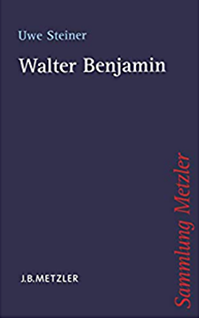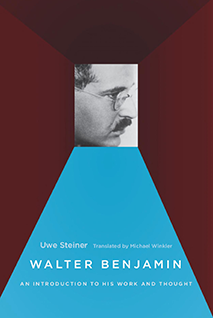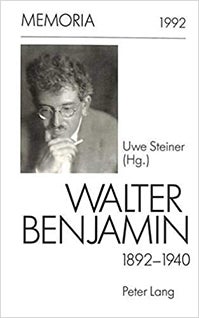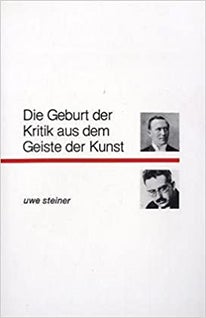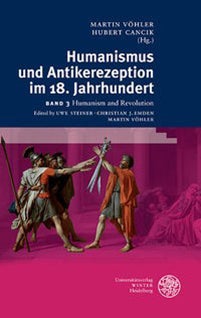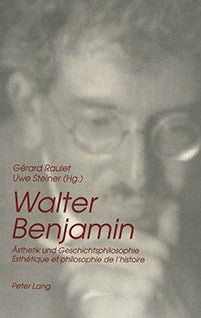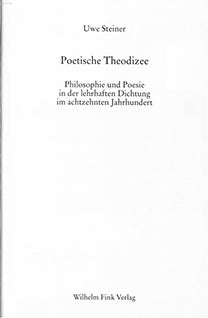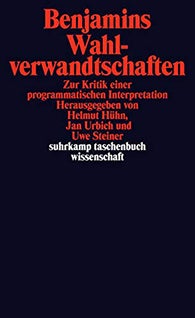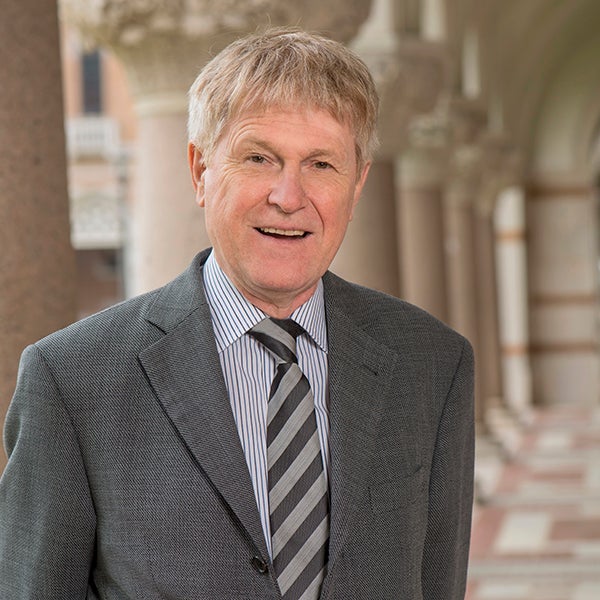Uwe Steiner is a world-renowned authority on the German-Jewish philosopher Walter Benjamin, one of the most significant and enigmatic figures in European intellectual history who played a crucial role in the formation of Frankfurt School critical theory and modern media studies. Steiner’s first book, Die Geburt der Kritik aus dem Geiste der Kunst (1989), which remains a standard work, traces how Benjamin’s concept and practice of “critique” emerges from his engagement with art criticism in German Romanticism and Goethe. His second book, Poetische Theodizee (2001), continues this interest in the eighteenth-century origins of modernity and examines the Enlightenment encounter between philosophy and poetry in the work of G.W.F. Leibniz, and Voltaire, including their intellectual context. Steiner third book, Walter Benjamin (2004), is an influential and widely used introduction to Benjamin’s thought and writings, which is also available in English translation. In 2008, Steiner published an annotated critical edition of Walter Benjamin’s early work on German Romanticism for a new edition of Benjamin’s complete writings, which is now available in both German and French.
Before joining Rice, Steiner held appointments at the Universität Bern, Switzerland, and at several U.S. universities, including two Max Kade Distinguished Visiting Professorships at the University of Washington, Seattle, and at Indiana University, Bloomington. Currently, he is working on a book about Walter Benjamin’s concept of the political in its historical and intellectual context, and he is also interested in theories of modernity and modernization as they are discussed from Max Weber to the Frankfurt School and in the emergence of philosophical anthropology during the Weimar Republic.
Selected Publications
- “Remember the Alamo!” in Robert Charlier, Sven Trakulhun, and Brunhilde Wehinger (eds.), Europa und die Welt: In memoriam Günther Lottes (Hannover: Wehrhahn, 2018), 151-73.
- Ed., Florens Christian Rang, Deutsche Bauhütte: Ein Wort an uns Deutsche über mögliche Gerechtigkeit gegen Belgien und Frankreich und zur Philosophie der Politik (1924) (Göttingen: Wallstein, 2015).
- Ed. with Helmut Hühn and Jan Urbich, Benjamins Wahlverwandtschaften: Zur Kritik einer programmatischen Interpretation (Berlin: Suhrkamp, 2015).
- Ed. with Christian J. Emden and Martin Vöhler, Humanism and Revolution: The Eighteenth Century and Its Transatlantic Legacy (Heidelberg: Carl Winter, 2015).
- “Ästhetische Theodizee: Überlegungen zum Problem der Darstellung in der Theodizee,” in Wenchao Li and Wilhelm Schmidt-Biggemann (eds.), 300 Jahre “Essais de Théodicée”: Rezeption und Transformation (Stuttgart: Steiner, 2013), 189-230.
- “Walter Benjamins Husserl-Lektüre im Kontext,” Internationales Jahrbuch für Hermeneutik 9 (2010), 189-258.
- Ed., Walter Benjamin, Der Begriff der Kunstkritik in der deutschen Romantik, in Werke und Nachlaß, eds. Christoph Gödde and Henri Lonitz, vol. III (Frankfurt/M.: Suhrkamp, 2008). French translation 2009.
- Ed. with Günther Lottes, Immanuel Kant: German Professor and World-Philosopher / Deutscher Professor und Weltphilosoph (Hannover: Wehrhahn, 2007).
- Walter Benjamin (Stuttgart: J. B. Metzler, 2004). English translation 2010.
- “‘The True Politician’: Walter Benjamin’s Concept of the Political,” New German Critique 83 (2001), 43-88.
- Poetische Theodizee: Philosophie und Poesie in der lehrhaften Dichtung im achtzehnten Jahrhundert (Munich: Wilhelm Fink, 2000).
- Ed., Walter Benjamin 1892-1940: Zum 100. Geburtstag (Bern: Peter Lang, 1992).
- “Die Geburt der Kritik aus dem Geiste der Kunst”: Untersuchungen zum Begriff der Kritik in den frühen Schriften Walter Benjamins (Würzburg: Königshausen & Neumann, 1989).
